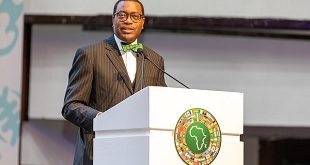The newly-reconciled leaders of South Sudan have called for a South Africa-style truth commission to heal the scars of a gruesome war in the world’s youngest nation.
President Salva Kiir and the newly-appointed vice president, Riek Machar, a former foe, said in a joint piece in The New York Times they were committed to ensuring South Sudan never again goes through a civil war.
“Bringing South Sudan together can be truly guaranteed only through one route: an organised peace and reconciliation process with international backing,” they wrote on Tuesday.
“We intend to create a national truth and reconciliation commission modelled on those of South Africa and Northern Ireland,” they said, ruling out punitive action for past misdeeds.
“Disciplinary justice — even if delivered under international law — would destabilise efforts to unite our nation by keeping alive anger and hatred among the people of South Sudan,” they said.
After gaining independence from Sudan in 2011, South Sudan erupted into civil war in December 2013, when Kiir accused Machar of plotting a coup and sacked him as vice president.
That set off a cycle of retaliatory killings that split the poverty-stricken, landlocked country along ethnic lines.
Tens of thousands of people have been killed and more than two million have been driven from their homes.
The conflict has been characterised by horrific rights abuses, including gang rapes, the wholesale burning of villages and cannibalism.
The United States is pushing for the rapid creation of a special court backed by the African Union to try war crimes suspects.
The creation of the hybrid court and a separate truth and reconciliation commission was a key provision of a peace accord signed by Machar and Kiir in August last year.
But that failed to stop the fighting. In February, Kiir named Machar as his vice-president once again and Machar entered the capital Juba in May, finally paving the way for a unity government.
Kiir and Machar said the truth and reconciliation commission would have sweeping powers and be able to investigate everybody from “the poorest farmer to the most powerful politician”.
“Those who tell the truth about what they saw or did would be granted amnesty from prosecution —- even if they did not express remorse,” they said.
The two leaders said the conflict had left “South Sudan with one of the highest levels of military spending by gross domestic product in the world.”
To add to its woes, South Sudan’s oil production virtually ground to a halt during the civil war after Kiir dismissed Machar as his vice president in December 2013.
 The Independent Uganda: You get the Truth we Pay the Price
The Independent Uganda: You get the Truth we Pay the Price



